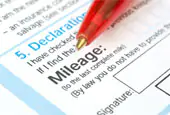When you are in the market for a used vehicle, it can be tough to know who to trust. Do you buy into the fact that the car has had only one owner? Is it true the vehicle has never been in any sort of accident? What about damage from weather or neglect?
No matter where or who you buy a used car from, information about the vehicle is power in your negotiations. When you don’t know all the facts about the car, the seller has the definite advantage in the sales process. When you get those facts, you are in the driver’s seat, literally!
What is a Vehicle History Report and Why do You Need It?
 A vehicle history report is like the vehicle’s DNA, offering information about the car’s past. The best vehicle history report will contain information from salvage yards, auto auctions, insurance companies, police departments, Department of Motor Vehicle, car manufacturers and dealers, and even car rental companies.
A vehicle history report is like the vehicle’s DNA, offering information about the car’s past. The best vehicle history report will contain information from salvage yards, auto auctions, insurance companies, police departments, Department of Motor Vehicle, car manufacturers and dealers, and even car rental companies.
Whew! That’s a whole lot of facts about a vehicle rolled into a single, convenient report, which is why the vehicle history report is like gold in the hands of a used car shopper. This report will give you nearly everything you need to know about a used car to ensure its safety, reliability and longevity – long before you put a single penny into the purchase transaction.
With plenty of fascinating facts hiding in these easy-to-obtain reports, you will quickly discover why you should never purchase another used vehicle without perusing one of these handy reports first.
Facts in a Vehicle History Report
Check out the many potential tidbits you can discover about a used vehicle in a free VIN check report the DMV provides, or from reports through private companies:
- Title information, including the state where the title was issued
- Number of titles associated with vehicle
- Mileage for the vehicle and possible odometer problems
- History of vehicle accidents, auction and lemon titles
- Service history and warranty information
- Total loss information provided by insurance companies
From this report, you can determine whether the car has suffered any flood, fire or frame damage. You will know whether the car has been in an accident, and how much previous work has been done. You may even discover if the vehicle has ever been used by police, taxi services or rental companies. This information can be invaluable when you are shopping for a used vehicle, and you want to be sure you get the best used car your money can buy.
Car Comparisons and Service Records
Some vehicle history reports also offer information about how this particular car compares to similar vehicles manufactured at the same time. Companies that issue these reports may give the car a score, based on this comparison. Other companies might provide information about the car’s service record, since well-maintained vehicles are typically more reliable vehicles over a longer period of time. The best vehicle history report offers a wide range of information from many different sources, for the most complete history possible.
Checking for Odometer Fraud
Another important piece of information you might glean from the best vehicle history report is whether there has been odometer fraud on the vehicle. Every time a car is taken in for service, the mechanic records the mileage number in the service records. If those records do not show a consecutive number, it could indicate the odometer in the vehicle has been tampered with. While this is rare, a quick check could reveal a potentially unscrupulous used car seller who’s trying to get more money for their vehicle than it is worth.
A vehicle history report can be obtained by simply entering the VIN of the vehicle. This simple step can prevent plenty of headaches for a buyer who is looking for a safe, reliable car for his hard-earned dollar.